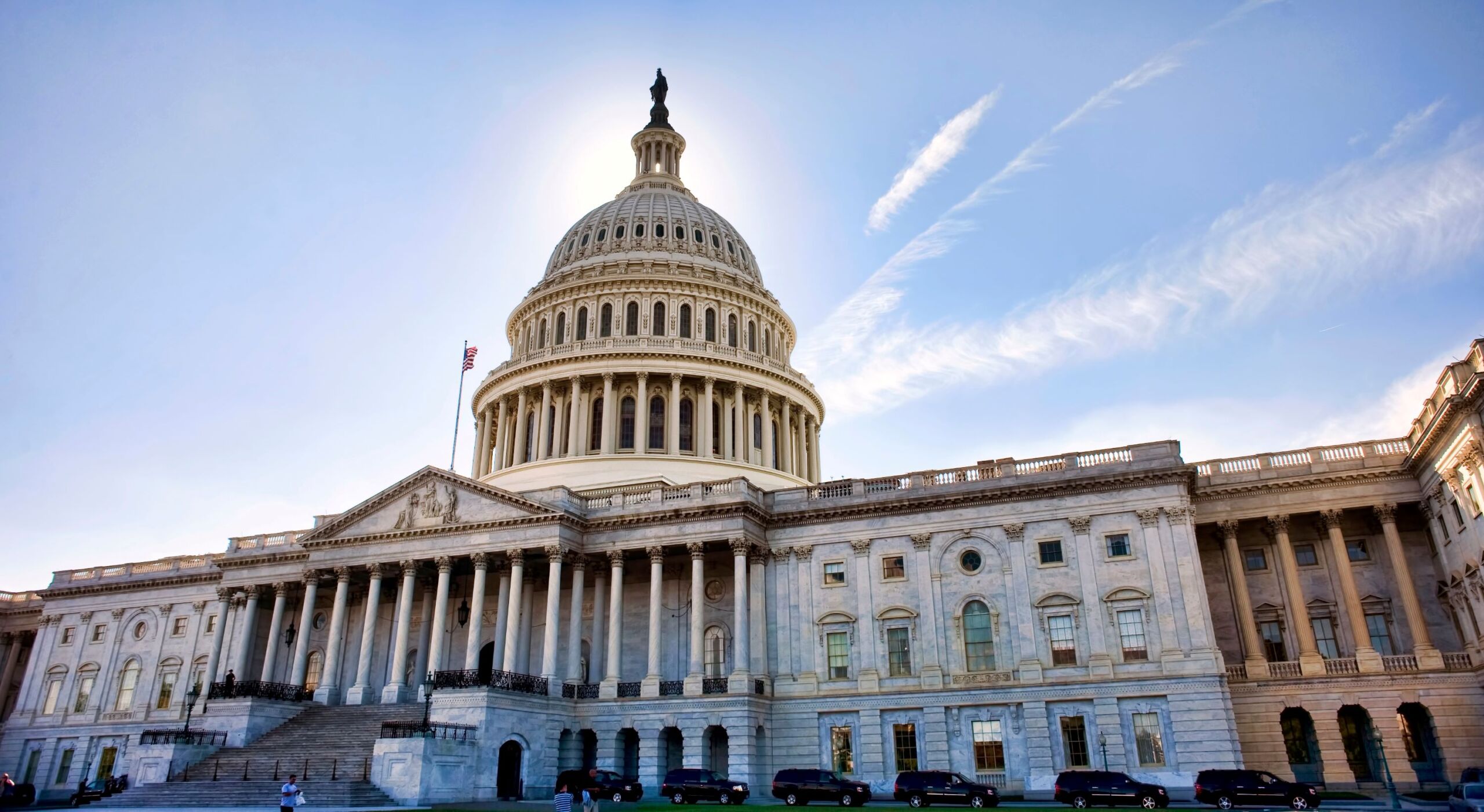The One Big Beautiful Bill introduces sweeping federal tax changes that impact individuals, families, and businesses alike. Understand key provisions, clauses, and strategic actions tax professionals should take to guide clients through the evolving landscape.
Jump to ↓
For tax professionals, the newly signed One Big Beautiful Bill Act (OBBBA) of 2025 has significant impacts for client tax planning and compliance. Signed into law by President Donald Trump on July 4, 2025, this sweeping legislation makes some of the 2017 tax cuts permanent, while introducing a variety of new provisions that can reshape the financial landscape for individuals, families, and businesses.
Keeping clients informed and updated on legislative developments is essential not only for compliance but also for identifying strategic opportunities, minimizing tax liabilities, and maximizing available benefits under the new law. Let’s take a look at the federal implications of the OBBBA and how you can take advantage of tools and resources to keep pace and best serve your clients.
How OBBBA is impacting federal tax policy
From an expanded state and local tax (SALT) deduction to a senior “bonus,” and increased estate and gift tax exemptions, the federal changes in the OBBBA require tax professionals’ immediate attention when advising high-net-worth clients and those living in high-tax states. The bill also introduces new tax breaks for tip income, overtime pay, and auto loans, along with the establishment of a tax-advantaged savings account for children which offer potential saving opportunities for a broad range of taxpayers.
Key individual provisions
The OBBBA brings significant updates to individual tax policy by permanently extending many of the Tax Cuts and Jobs Act (TCJA) provisions that were previously set to expire. This includes individual income tax rate reductions, the increased standard deduction, and higher alternative minimum tax (AMT) exemption thresholds.
The Act also introduces new deductions aimed at workers, such as those for tip income, overtime pay, and car loan interest, which could benefit lower and middle-income clients. However, compliance has tightened. Individuals must meet more stringent Social Security number requirements for claiming new deductions, the SALT deduction remains capped (albeit at a higher threshold), and eligibility rules for the Premium Tax Credit (PTC) have narrowed.
AT-A-GLANCE – OBBBA federal implications for individuals:
- Permanent extension of TCJA brackets & standard deduction. Individual tax brackets from the 2017 Tax Cuts and Jobs Act are now permanent through 2025 and beyond.
- Standard deduction. Increased to $15,750 for single filers and $31,500 for married filers (up from $15,000/$30,000), indexed for inflation.
- State and Local Tax (SALT) deduction. Cap increased from $10,000 to $40,000 through 2029 (phases with inflation), then reverts to $10,000 in 2030. Phase-out begins at $500,000 MAGI (single) and $600,000 upper cap.
- Senior “bonus” deduction. New extra deduction of $6,000 per senior (age 65+) ($12,000 for qualified couples), effective 2025–2028; phases out at $75K MAGI (single), $150K (joint).
- Child Tax Credit. Increased to $2,200 per child, indexed for inflation beginning 2026.
- Tip and overtime deductions. Up to $25,000 deduction for tip income per filer; applies 2025–2028, phases out at $150K MAGI single ($300K joint). Overtime deduction capped at $12,500 (single) / $25,000 (joint); same phase-outs apply.
- Auto loan interest deduction. Up to $10,000 per year for interest on loans for U.S.-assembled vehicles taken after 2024; phases out at $100K/$200K income ($150K/$250K cutoff).
- Estate and gift tax exemptions. Exemptions increased to $15 million (single) and $30 million (joint).
- Child savings accounts. New tax-advantaged “Trump Accounts” for children under age 8; details limited but designed for long-term savings.
Key business provisions
For businesses, the OBBBA reintroduces and enhances several valuable tax incentives. Bonus depreciation is revived, allowing 100% expensing of qualified property placed in service, and Section 179 expensing limits have been raised, giving small and mid-sized businesses more flexibility in capital investment decisions. The legislation also reinstates enhanced charitable deduction limits and imposes stricter 1099 information reporting, requiring tighter compliance protocols.
Updates to fringe benefit rules, including modifications to meal and transportation benefits, as well as expanded payroll tax credits for certain industries, provide both opportunities and challenges. Advising your clients on proper substantiation and timing of deductions is more important than ever, as the IRS will likely scrutinize these areas closely.
AT-A-GLANCE – OBBBA federal implications for businesses:
- 100% bonus depreciation and new expensing for certain real property. The OBBBA provides for a 100% bonus depreciation and new expensing for certain real property, including nonresidential property, which can help businesses recover costs more quickly.
- Section 199A (QBI) deduction. The 20% deduction for qualified business income from partnerships, S corporations, and sole proprietorships is made permanent, ensuring that businesses can continue to benefit from this tax break. The phase-outs for this deduction have been expanded, and there is now a minimum deduction available for activities generating $1,000 or more of QBI.
- Section 179 expensing. The Section 179 expensing limit has been increased to $2.5 million, allowing businesses to deduct more of their smaller capital purchases upfront.
- Temporary increase in SALT cap. The SALT cap is temporarily raised to $40,000 for taxpayers earning under $500,000 between 2025 and 2029, providing more tax deductions for high earners.
- Pass-Through Entity Tax (PTET) remains intact. Pass-throughs may continue to pay state income taxes at the entity level, which reduces taxable income for owners.
- Charitable contributions. Nonitemizers may now deduct charitable contributions up to a specified limit, and new floors apply to itemized deductions.
Provisions and credits ending with the One Big Beautiful Bill Act
While the OBBBA adds and extends several incentives, it also sunsets some key tax benefits, particularly those related to energy. Popular clean energy credits, such as those for residential solar installations and electric vehicles, are being phased out. Additionally, the more generous accelerated depreciation schedules for energy-efficient property are coming to an end, which could affect planning for businesses and individuals considering sustainable upgrades.
It’s crucial to help your clients pivot their planning strategies to account for these expirations, ensuring they take final advantage of expiring provisions where possible and shift toward other tax-efficient opportunities.
AT-A-GLANCE – OBBBA ending certain energy tax credits, including:
- Residential Clean Energy Credit (Section 25D). 30% credit for solar panels, wind, geothermal, and battery storage systems expires after December 31, 2025 — no more credit for systems installed in 2026 and beyond.
- Energy-Efficient Home Improvement Credit (Section 25C). Current credit (30 % for insulation, windows, doors, HVAC) also ends after December 31, 2025.
- New Energy Efficient Home Credit (Section 45L). Credit for builders of energy-efficient homes terminated for properties acquired after June 30, 2026.
- Investment Tax Credit for Solar & Wind (Section 48E). 30% ITC for commercial wind and solar ends after December 31, 2027, unless construction begins by July 4, 2026 (then must be placed in service by end of 2027).
- Clean Vehicle & Charging Credits (Sections 30D, 25E, 30C). New and used EV credits expire after September 30, 2025, and EV charger credit expires after June 30, 2026.
- Accelerated depreciation for energy property (Section 168 for § 48 property). 5year accelerated cost recovery period removed for energy property beginning construction after December 31, 2024; only 100 % bonus depreciation remains for property acquired after January 19, 2025, with no energy property bonus depreciation after 2024.
Strategic implications in a shifting political landscape
While the ‘One Big Beautiful Bill Act’ provides near-term clarity by making key provisions of the Tax Cuts and Jobs Act permanent, it doesn’t eliminate long-term uncertainty. Many of the original TCJA sunset clauses technically remain in place for 2026, leaving the door open for future reversals or revisions — especially as political dynamics shift following the 2024 elections.
In this climate of legislative unpredictability, tax professionals must do more than react — they must lead. That means helping clients prepare for a range of possible outcomes, maintaining flexible strategies, and staying ahead of both federal and state-level developments.
To navigate this evolving landscape, firms should focus on five key areas:
- Scenario planning: Model multiple tax outcomes — federal and state — to prepare clients for a variety of possibilities. This includes anticipating how different states may conform to or decouple from federal changes and identifying planning opportunities under each scenario.
- Client communication: Proactively explain how the OBBBA affects clients’ current and future tax positions. Clear, timely updates build trust and empower clients to make informed decisions before deadlines hit.
- Advisory services: Go beyond compliance by helping clients optimize deductions, restructure income, or take advantage of time-limited provisions. This is a prime opportunity to position your firm as a strategic partner, not just a tax preparer.
- Technology enablement: Use tools like CoCounsel Tax to streamline research, generate client-ready summaries, and access up-to-date guidance across federal and state levels — all in one place. With explainable AI-backed answers and built-in citations, your team can move faster and advise with confidence.
- Regulatory monitoring and advocacy: Stay on top of evolving IRS guidance and Treasury regulations related to OBBBA provisions. Being proactive in tracking changes ensures your firm can respond quickly and accurately.
What tax professionals should do now to manage the OBBBA impact
As the landscape of federal tax policy shifts under the OBBBA, tax professionals must remain agile and proactive. Staying current with legislative updates and political developments is necessary to deliver accurate, forward-looking advice. Equally important is clear, proactive communication with clients to help them understand the impacts of these changes and prepare for multiple possible outcomes.
To navigate complexity efficiently, lean on powerful tools like:
- CoCounsel Tax for AI-assisted interpretation, digestible summaries, client-ready insights, and easy access to the latest federal and state developments
- GoSystem Tax, for cloud-native, multi-user access, e‑filing automation, real-time data import/export, and robust APIs for integrating workflows
- UltraTax CS, for intelligent calculations, advanced diagnostics, seamless data sharing, and an online e‑file dashboard.
Remember: Major tax changes present an opportunity to expand beyond compliance and position your firm as a strategic advisor. Together with powerful technology and expert insights, your firm can identify planning opportunities, model outcomes, and guide clients through uncertainty.
To learn more about the impacts of the new tax legislation, listen to our recent podcast episode: Tax reform unpacked: What does the One Big Beautiful Bill Act mean for you?
 |
|

